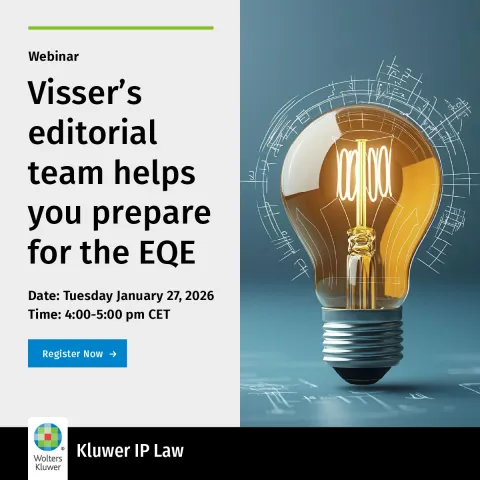The EPO's Ride from Patentamt to Oktroybureau
November 24, 2020
Let's start with a bit of etymology today. The official translation of "European Patent Office" into German is "Europäisches Patentamt", the latter obviously being a composite of Patent and Amt.The German word "Amt" is derived from medieval German "ambt" or "ambahte", which means servant. That is, the prime function of an Amt is to serve the people. This is, by the way, also the origin of "office": Officium in Latin means "service", but can also be "duty". A synonym for the German "Amt" is "Behörde", and this term comes from "hören" (to listen). A person who holds an "Amt" is a "Be-amter" in German. Wikipedia includes a highly illuminating section on the concept of "Beamte" (plural of Beamter):
The conceptual foundation of Beamte is to be found in the "enlightened rule" of monarchs practised in 18th-century Prussia and other German states. These states did not accept "radical" concepts such as democracy or popular sovereignty, but they did struggle to professionalise their public services and to reduce corruption and favouritism. The idea was that whoever represents the state by undertaking official duties which only the state may legally provide (hoheitliche Aufgaben), such as issuing official documents, teaching state-approved curricula to students, preaching in state-approved churches, or making any other kind of official decisions, should have a special legal status and relationship with the state characterised by a higher-than-normal degree of loyalty. At its core, that loyalty is regarded as mutual, with Beamte having a special duty of service (Dienstpflicht) going beyond the duties of salaried workers, with the state having a special duty of seeing to their welfare (Fürsorgepflicht) that likewise goes beyond what would be expected of a commercial employer.
Sometimes I wish that the modern EPO were still a Patentamt in this good, traditional sense. But I am afraid that this ship has sailed a while ago. I would submit that the EPO has, in at least some important respects, meanwhile morphed into an Octroybureau.
I can see my Dutch readers shaking their heads and saying: The Dutch word for patent office is Octrooibureau, so what's the difference here? Let me explain, using etymology once more. The word "bureau" is doubtlessly of French origin; in the beginning it was apparently borrowed from French bureau, earlier "coarse cloth (as desk cover), baize", from Old French burel (“woolen cloth”). From there bureau was used to designate the entire desk (usually with compartments underneath) and later the entire room with the desk inside and a writer using this desk. And octroy (Dutch: octrooi) has an even more interesting history. It is derived from French "octroyer" and means "to grant (a privilege etc., by government etc.). While this still sounds pretty innocent and "patent-like", the German word "oktroyieren", while also derived from French octroyer experienced an almost modern political shift in meaning: "oktroyieren" in German means "to impose, to force something on someone". So you are no longer awarded a right or privilege, but you are simply ordered to do something from now on.
With that, we are back in the present. Just recently, the EPO President has ordered (oktroyiert) that oral proceedings before the Opposition Divisions will from now on take place via videoconference (VICO). Consent of the parties will be no longer required. And this measure is sold to the public as means "to improve access to justice":
The European Patent Office (EPO) is announcing today further measures to improve access to justice in relation to opposition hearings held by videoconference (VICO), in light of the ongoing coronavirus pandemic which imposes restrictions on travel and health risks for all in-person meetings.Today's report shows the considerable progress made so far in terms of the necessary legal framework, technical infrastructure and training support since the pilot project to conduct opposition hearings by VICO started in May 2020. In recent weeks the addition of Zoom as a technical platform has facilitated multi-party opposition hearings and interpretation. These advances have been broadly welcomed by the patent profession.
However, today's report also shows that the current measures will not be sufficient to clear the substantial backlog of opposition hearings that built up over the last six months.
So, to cut it short, VICO as a means to hold oral proceedings in opposition proceedings were available since (at least) May 2020. Yet alas, they were not accepted by "the patent profession" to an extent sufficient to clear the EPO's backlog. Thus, time to tell the profession how to do it properly. Thank you, Mr. President.
It is more the style of this communication that disturbs me than the substance of the President's decision. I (and I think this applies to the majority of the patent profession) do realize that we live in difficult times, and that oral proceedings in person before the Opposition Divisions are not exactly what should be done in order to keep your contacts to the necessary minimum. I also understand that the EPO is building up a backlog of cases if no or only a few decisions can be made in COVID-19 times. The patent profession will suffer at least as much from this backlog as the EPO itself. Just imagine if you have to attend to (and ideally win) 2 or more oral proceedings every week... - So, I understand that something should be done to avoid this unpleasant state of affairs. But is this not the point in time where to conduct a public consultation and collect both the ideas of stakeholders and their concerns before announcing such a decision? Conversely, if you understand your position as the boss of an Octroybureau, why bother?
The Boards of Appeal do it a bit better. They have initiated a public consultation and collect stakeholders' views until 27. November 2020. More information is available here. The issue at stake is the insertion of a new Art 15a into the Rules of Procedure before the Boards of Appeal (RPBA) that may read as follows:
Oral proceedings by videoconference(1) The Board may decide to hold oral proceedings pursuant to Article 116 EPC by videoconference if the Board considers it appropriate to do so, either upon request by a party or of its own motion.
(2) Where oral proceedings are scheduled to be held in person, the Chair may allow a party, representative or accompanying person to attend by videoconference. In exceptional circumstances, the Chair may decide that a party, representative or accompanying person shall attend by videoconference.
(3) The Chair may allow any member of the Board in the particular appeal to participate by videoconference.
So this new Article would enable and empower the Boards of Appeal to adopt a "new normal", i.e. oral proceedings by videoconference "if the Board considers it appropriate to do so". Notably, this new Article in its present form would apply indefinitely, i.e. may well outlive the current COVID-19 situation. I would not be surprised if the Boards of Appeal and their President would tell us that this is definitely not intended and that the Boards would certainly return to the "old normal" after the end of the pandemic. I would even accept and believe that at face value. However, this is precisely the problem of enablement laws - you are completely dependent on the goodwill of the persons you have empowered. I personally would therefore much prefer a legal solution that is either limited in time from the beginning or made dependent on a declaration of the President of the Boards of Appeal or (better) by the Administrative Council that there is a state of emergency due to a pandemic, during which special rules apply, but these rules cease to be applied once this state of emergency has ended. If my understanding is correct, this is also how several contracting states (including Germany) have formulated their infection protection laws.
In any case, I would encourage readers to participate in the consultation initiated by the Boards of Appeal, even though I am not too optimistic that this consultation will have much of an impact on the final wording of Art. 15a RPBA. My slightly skeptical attitude is (a) based on experience with similar consultations in the past and (b) confirmed by the following paragraph in the Explanatory Memorandum, according to which it seems that the Boards would not even necessarily wait for the Administrative Council's approval to go ahead - so why should they wait for our consent?
It is suggested that proposed new Article 15a RPBA enters into force on 1 April 2021, subject to its approval by the Administrative Council under Article 23(4), second sentence, EPC. As outlined above, proposed new Article 15a RPBA clarifies the practice of the Boards of Appeal since May 2020 of conducting oral proceedings by videoconference. Therefore, the Boards of Appeal may adapt their practice before the date of entry into force.
Be that as it may, I have to say that it is not my impression that new Article 15a "clarifies the practice of the BoA since May 2020". So far as I know, the existing practice still is to conduct oral proceedings by VICO only if all parties have approved it.
So what is the best way forward? One the one hand it seems clear to me that, compared to hearings in person, VICOs have significant downsides: an exchange of arguments is of course possible, but communication is also clearly more limited (in both directions) and this deficiency does not help the perception that justice is done. On the other hand, it is simply not possible to hold as many oral proceedings in person in these COVID-19 times as previously. Parties and their representatives should therefore help the EPO to make OPs via VICO possible and not block them as a point of principle. Conversely, the EPO should also listen to the parties' concerns, if any, against oral proceedings by VICO in an individual case and take them seriously.
You may also like















Concerned observer
For years, professional representatives were told by the Boards of Appeal that Articles 113 and 116 EPC did not provide any absolute right to VICO oral proceedings. So what has changed? And where is the legal basis for what is undoubtedly a novel interpretation of the EPC, namely that Articles 113 and 116 EPC now will not provide any absolute right to in-person oral proceedings? As with the Decisions of the EPO President in connection with VICOs for examination and opposition oral proceedings, this is nothing other than law-making by executive decree. The fact that the AC is involved in passing any new articles of the RPBA does not help either. This is because they are an ADMINISTRATIVE Council, not a legislative body ... though, based upon the decision in G 3/19, one could be forgiven for feeling that the line between the two has been somewhat blurred, if not entirely destroyed. And to which judicial instance can you complain if you believe that a decision of the Boards of Appeal to conduct VICO oral proceedings infringes your right to a fair trial (according to Article 6 ECHR)? To my knowledge, unless there is a change to the statutory definitions of the grounds for submitting petitions for review, the Enlarged Board is almost certain to dismiss any such complaints as inadmissible ... which strikes me as being contrary to the principles of justice as enshrined in the ECHR.
Looking forward to the beach and the daiquiris
While I'm also somewhat miffed about the manner and language of the President's announcement ("access to justice"...hah), I must also say that this is an inevitable development, which should be seized by the patent profession as an opportunity rather than a hassle. Having numerous friends in both towns, I enjoy trips to Munich and The Hague as much as anybody else, but it's undeniable that all that travel to attend oral proceedings comes at a cost, first of all to the client, but also to the climate and to our personal lives and families. It also gives an unfair advantage to the parties and representatives located close to the two cities, to the detriment of those living elsewhere, in particular in less-developed regions of Europe. Moreover, while videoconferencing has its limits, properly used it could also open new opportunities to present a case even more clearly and persuasively than in person, using e.g. audiovisual tools, computer animations, etc. It will require learning and adaptation, but any good professional should be ready to learn and adapt to new circumstances. Anyway, I look forward to be able to attend oral proceedings in the future from any of the sunniest islands belonging to EPO member states...